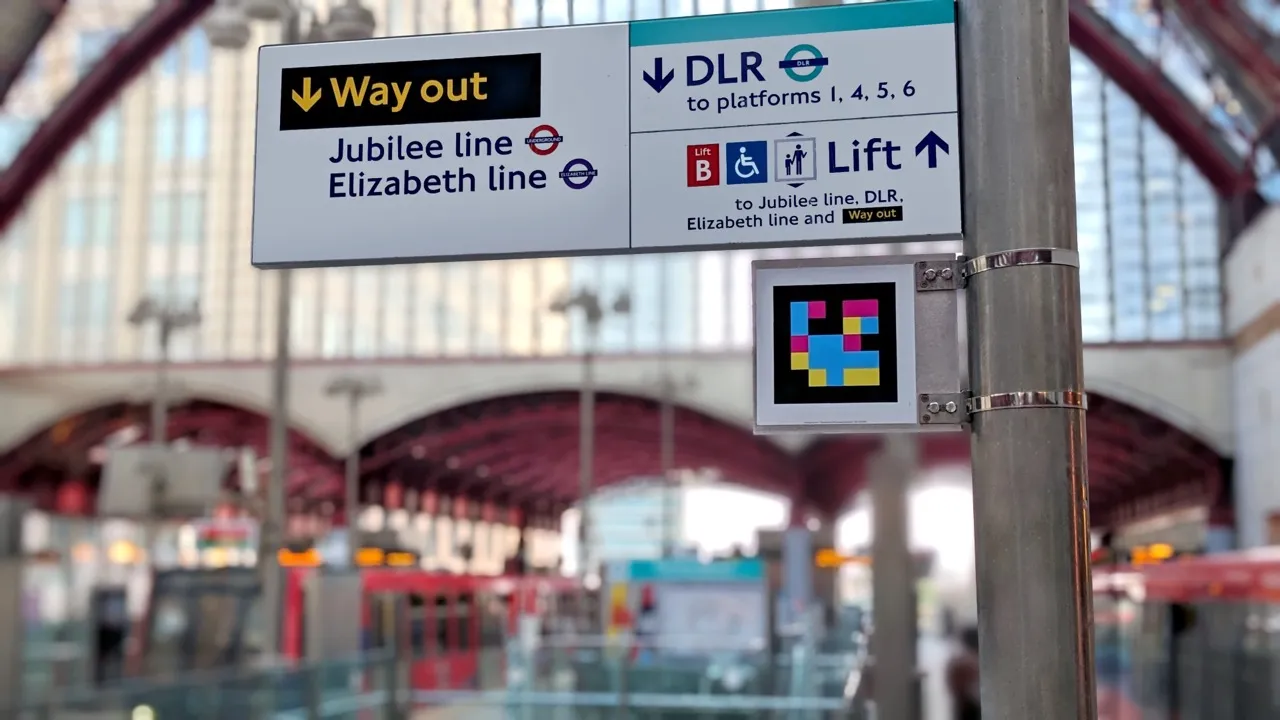
An app designed to help blind or partially-sighted customers navigate public transport is being tested at light rail stations in London.
NaviLens technology is being trialled at Cutty Sark, Canary Wharf, Woolwich Arsenal, and Tower Gateway DLR stations for six months.
As well as Transport for London (TfL), the initiative involves KeolisAmey Docklands, operator of the DLR light rail system, GoMedia (a subsidiary of Icomera) and The Royal National Institute of Blind People (RNIB).
NaviLens technology is based on image recognition using augmented smart codes at stations and the NaviLens smartphone app that provides voice guidance for visually impaired passengers.

Once the smart codes have been scanned, the app’s voice assistant helps users continue their journey.
It is able to provide practical information including description of a physical element, guidance indications and live DLR arrivals and departures.
The trial of NaviLens will be supported by audio announcements at stations, as well as members of staff on DLR trains and at stations to assist passengers.
The technology can also be used to support tourists or people unfamiliar with London: the NaviLens app can transmit the information encapsulated in the smart codes in augmented reality, in 33 different languages.










